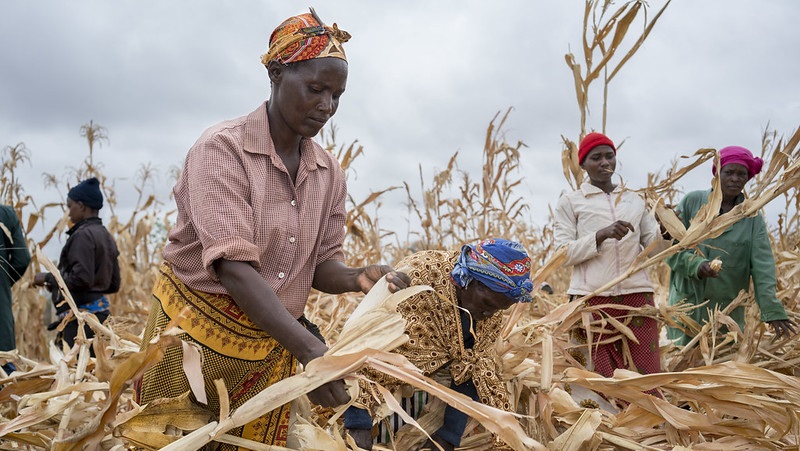“Rapid, deep and immediate” emissions reductions across all sectors: the third part of the IPCC report, released this month, leaves no room for speculation as to what must be done.
We know that the window for staving off runaway climate change has been closing for some time. Now we know it’s nearly shut.
A century of rising emissions must end before 2025 to keep temperatures to below 1.5C, beyond which severe impacts will increase further, impacting billions of people.
But the hope of a liveable and sustainable future for all is fading fast. Instead of building on the opportunities of the multitude of low carbon solutions at our disposal, on the horizon appears a new fossil fuel extractive bonanza that would quickly put our Paris Agreement goals out of reach.
Global warming remains the most rapidly growing threat to human species on the planet. We must not let the current geopolitical crisis weaken our momentum towards a net zero and climate-resilient world.
We must do everything in our power to resist dangerous knee-jerk responses to the challenging moment that we find ourselves in, and instead look to seize the opportunity to untangle ourselves from historic extractive dependencies.
IPCC: Five takeaways from the 2022 report on limiting dangerous global heating
We must, and we can, drastically phase down fossil fuel use and make major investments in renewable energy. The cost curves for these technologies are in steep and irreversible decline. And as fuel prices continue to rise at the pump, the arguments for hastening the switch away from coal and oil become more persuasive with every cent.
But it’s not just the energy sector we must urgently transform. The way we produce our food is also critical. Although fossil fuel reduction must be our focus, we must not lose sight of the large-scale emissions reductions and sequestration potential of the agriculture, forestry and other land use sectors.
We must turn our attention to local, regenerative and natural agricultural practices that drawdown carbon and boost biodiversity. We must also work hand in hand, as the IPCC recommends, with Indigenous peoples, who are the best guardians of wild places.
This shift will also dictate the food security of millions of people. Before the current geopolitical crisis food and energy prices had already been pushed to historic highs. But just days into the crisis, prices surged higher – of particular concern to Africa, Asia and the Middle East that depend heavily on wheat imports.
This brittle dependency must stop. One in three Africans – 422 million people – live below the global poverty line, despite the fact that Africa has the largest tranches of uncultivated arable land anywhere in the world. To take one example, Africa’s Guinea savanna has twice the land available worldwide for wheat production, but only 10% of it is currently farmed.
Thankfully, with innovation, technology and investment, there are clear solutions ready to be deployed. And farmers, especially smallholder farmers, must be helped in this transition to more regenerative and productive agriculture.
Transforming food systems could release back the $12 trillion the world spends on the hidden cost of food, from transportation to fertilisers. We could also eliminate nearly all of the 8.5% of emissions that come from agriculture.
We know this can be done – it has already been done in many parts of the world. This is why we must embrace and support the hundreds of new coalitions and pilot projects, including those in Africa, rapidly transforming the way we use and manage our lands.

Mahmoud Mohieldin at the 2019 UN Climate Action summit in New York (Photo: IISD/ENB | Kiara Worth
In 2021, the UN High-Level Champions worked with a range of leading African institutions to produce a report that showed the advantages to nature and business of moving towards more nature-friendly farming practices.
My wish is that Cop27 in Egypt provides a pivotal moment for the food and agriculture agenda that highlights and encourages future innovation for climate-resilient and sustainable agriculture practices.
As the UN Special Envoy on Financing the 2030 Sustainable Development Agenda since February 2020, I believe in the indispensable need for a holistic approach when addressing sustainable development issues, foremost among them the challenge of climate change.
We face a collective test of our humanity. But above all else, this is a real test of leadership. For millions of people – particularly in Africa – suffering and exposure to natural disasters are already a part of daily life. Only immediate action that wrenches us away from the era of extraction and destruction will reinforce our security, self-sufficiency and pull us back from the climate brink that we currently find ourselves at.
At Cop27, it is incumbent upon all states and non-state actors to demonstrate a united world that faces climate change challenges through urgent, ambitious, and transformative agenda. It is time to translate commitments and pledges to action.
Mahmoud Mohieldin is the Egyptian UN Climate Change high-level champion and the UN special envoy on financing the 2030 sustainable development agenda.
